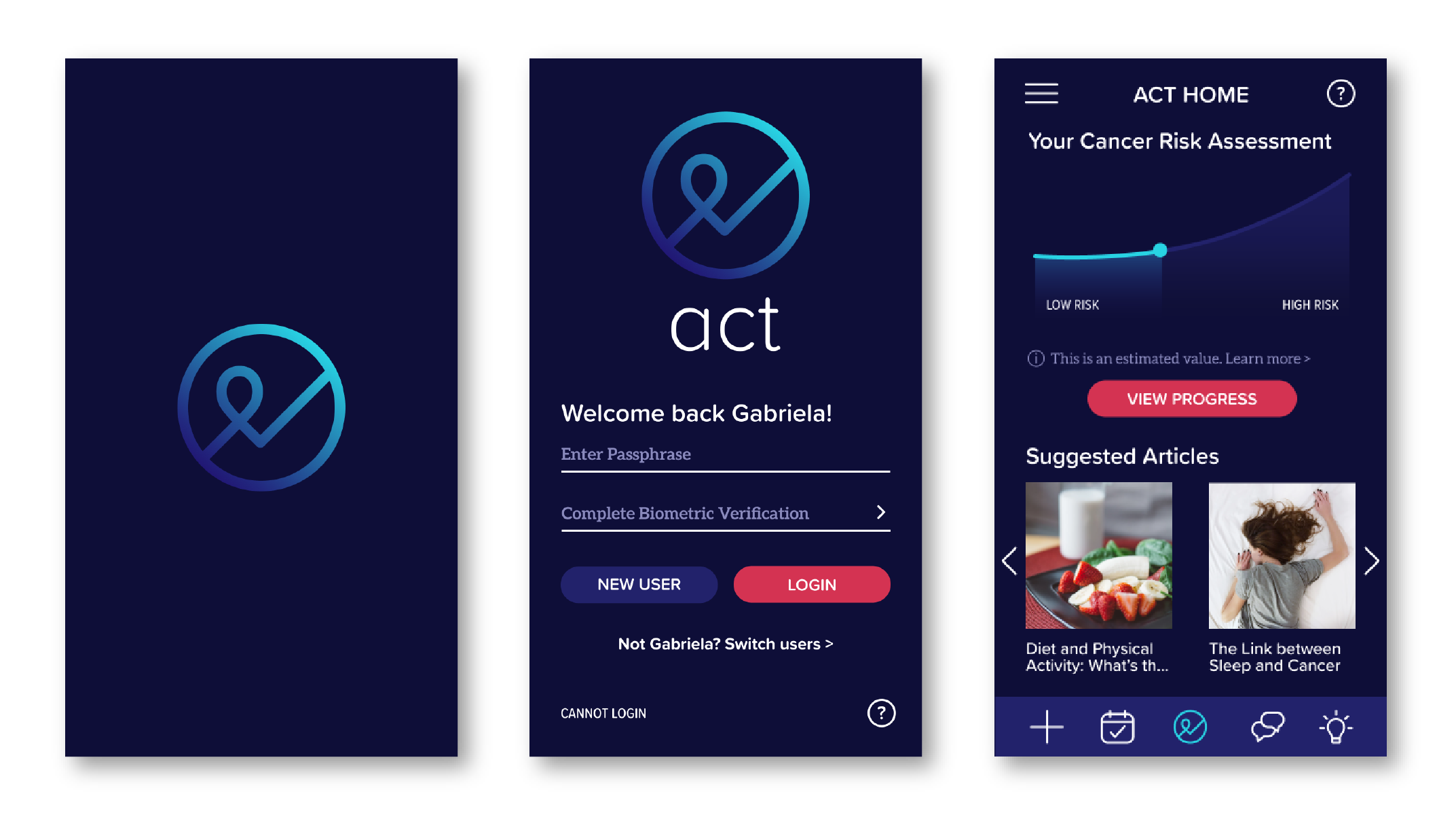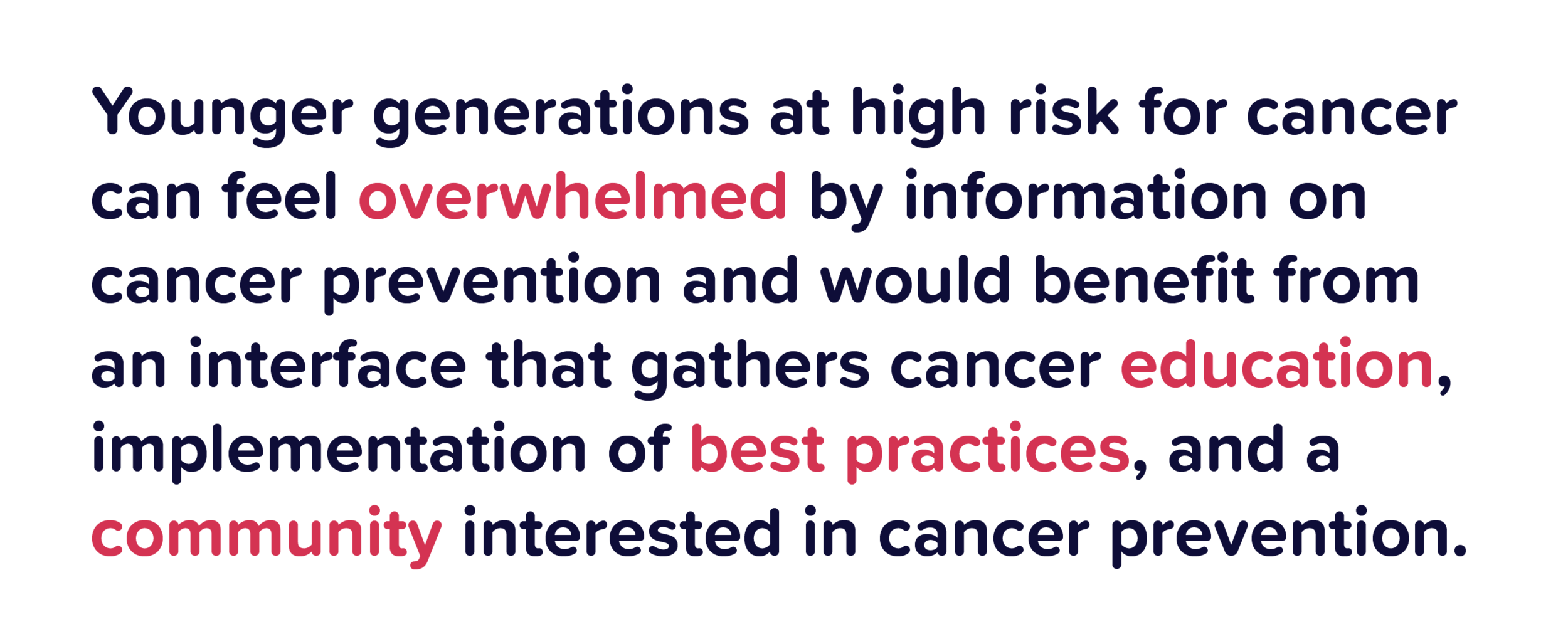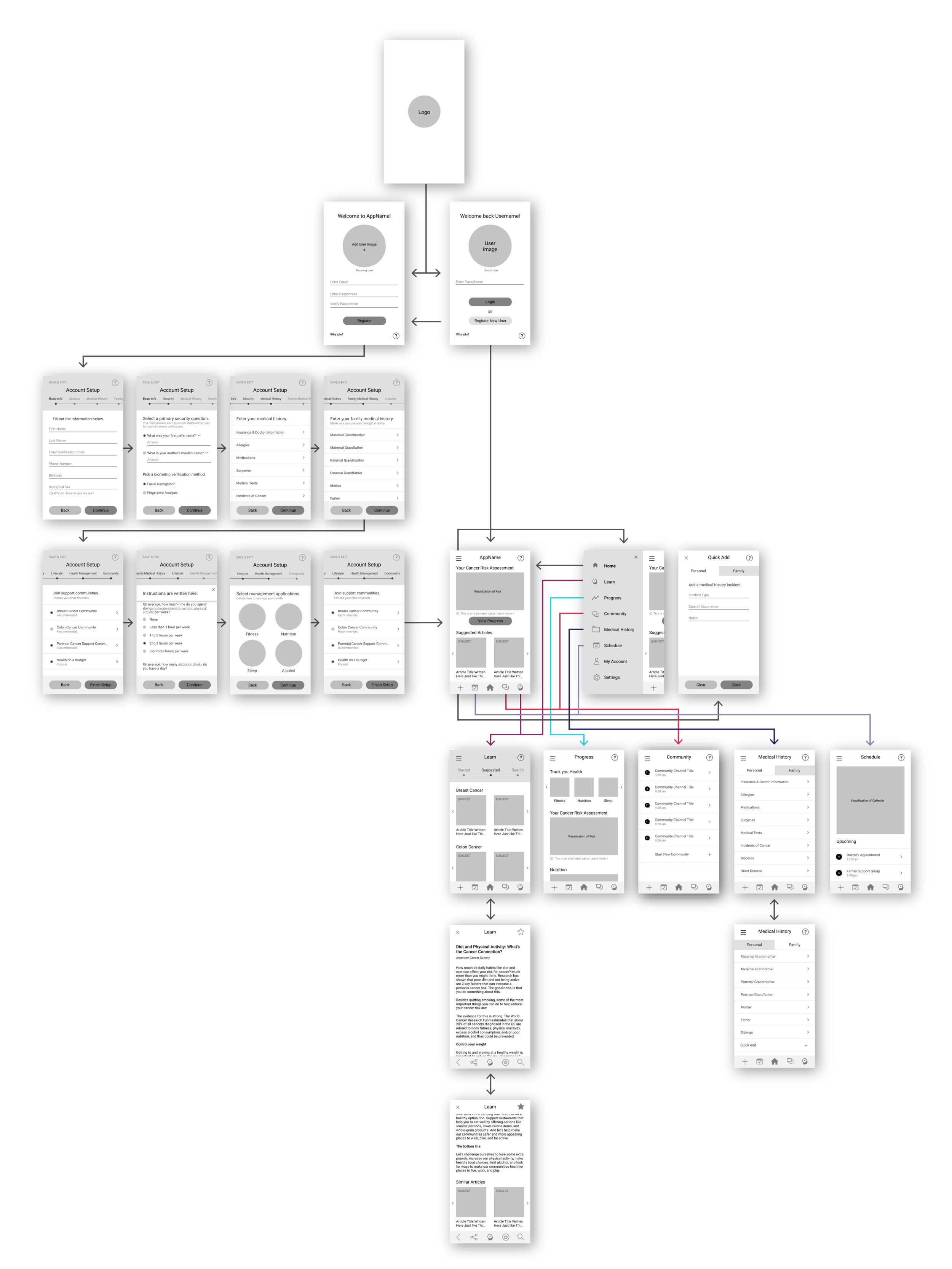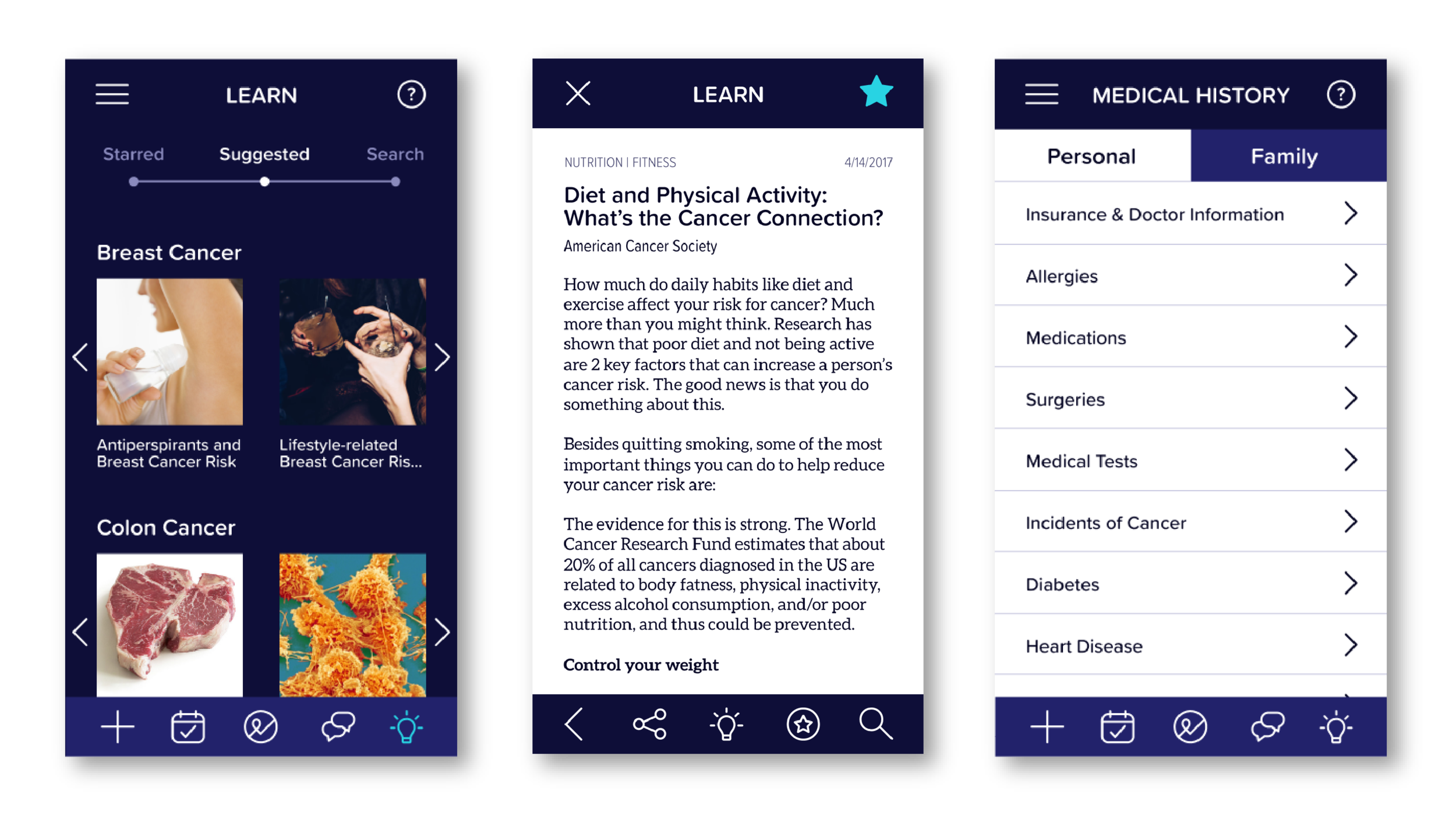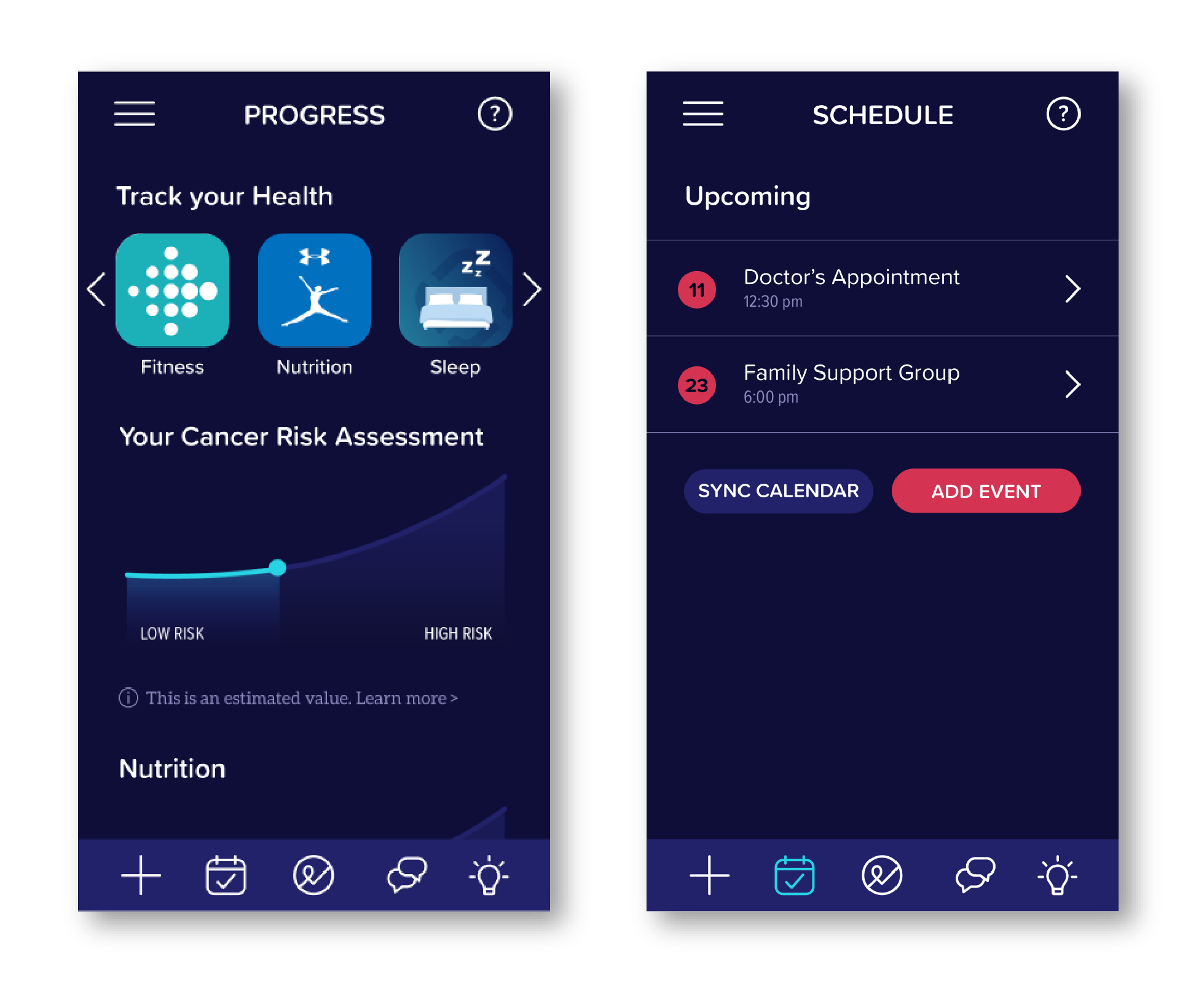Act
Fall 2017 | Capstone Project Part 1
Research, product concept & prototype.
Illustrator & Figma
“Studies tell us that patients who learn more about their disease and are more actively involved in their medical care, have a better quality of life. Some studies even suggest they may have better outcomes as well.”
Making cancer prevention approachable.
For my senior capstone design project, I strived to address the overwhelming nature of cancer for those at risk. With a growing number of young individuals that are at high risk for cancer due to their family medical history, the need for a way to manage risk is obvious. In response I designed the concept for a platform called Act; a comprehensive application that provides education, inspires action, & fosters a community.
PROBLEM
RESEARCH
“20% of all cancers diagnosed in the US are related to body fatness, physical inactivity, excess alcohol consumption, and/or poor nutrition, and thus could be prevented.”
“People don’t think about colorectal cancer in young people. [The] delay can allow cancers to grow, so they’re not found until the cancer is larger or has spread, at a later stage when the survival rate is not as high.”
Survey of Individuals with Cancer in their Immediate Family
30 Participants | 20 to 30 years old | College Educated
This survey was created by me and distributed to University of Texas at Austin students who had cancer in their immediate biological family. I asked various questions with both qualitative & quantitative responses in order to better understand the existing experience for those at risk.
Do you know or have access to your family medical history?
If only 70% of participants, who are educated and aware of serious medical issues in their family, are knowledgeable about their family medical history, a clear need is established for education on this aspect and a simple way to consolidate this information.
Do you monitor or track your health?
This feedback indicates that this target demographic is willing to take an active role in their healthcare. Additional responses indicated individuals often use simplified applications to monitor their health.
Where do we go from here?
By analyzing existing research, conducting my own research, and examining precedent for preventative healthcare, I was able to identify the needs of the target user. There is a lack of education about cancer and medical history, but existing methods for learning and tracking are unaccessible. Younger individuals are not actively considering risk, but are willing to monitor their health if convenient. Community provides motivation and furthers education through spread of knowledge.
PROCESS
User Flow + Wireframes
Key Interactions
SOLUTION
An application that empowers.
With a bold and engaging brand, Act mobilizes young adults who are at risk for cancer by providing a centralized and convenient means for managing risk.
A visualization for one's cancer risk assessment provides a tangible and motivational goal for users to understand the impact they can have on their own risk. This assessment would be carefully crafted with cancer experts in order to assign weight to actions and demographic aspects. This would always be emphasized as an estimate to provide direction, not a guarantee of prevention.
The homepage provides a means to manage your risk including immediate access to track your health management as well as top suggested articles to encourage education. Additionally, the global bottom menu allows for quick access to key features including from left to right; quick add for medical instances, scheduling reminders, home screen, community channels, and education resources.
Education is the key.
Act enables the user to learn about cancer and prevention in a personalized & approachable way through a unified platform of educational resources. The application suggests articles from credible sources based on user information & preferences. It also allows the user to star articles to bookmark them and provides a search function as a convenient, centralized resource to explore updated cancer sources. Act encourages educating oneself on personal and family medical history while providing a accessible platform to gather this information.
Inspiring action to create change.
Act allows users to sync preferred methods of tracking to feed activity information into the dynamic risk assessment. It is also a central base for all health and lifestyle activity. The screen provides visuals to allow the user to easily understand the information and impact their healthy choices will make. The schedule component encourages doctors visits and a central base for activity reminders to motivate prevenative & helpful action.
Community provides education & better outcomes.
The community channels provide an area for users to share information and motivate one another. By sharing knowledge and perspective, these communities increase individual advocacy which further educates on new topics which has been shown to improve health related outcomes.



